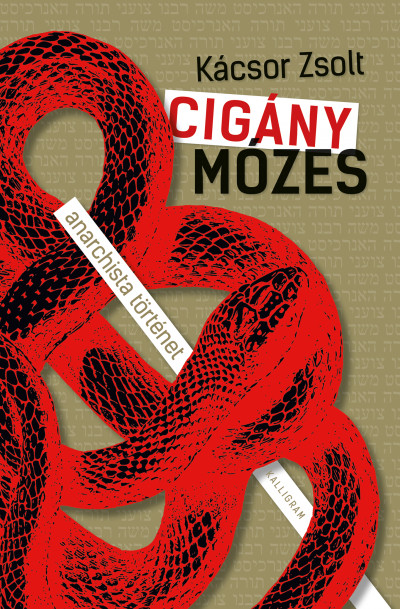
Author: Zsolt Kácsor
Original title: Cigány Mózes, anarchista történet
Title in English: Gypsy Moses, an anarchist story
Publisher: Kalligram
Year of publication: 2020
Number of pages: 272
Rights sold: Czech Republic
Gypsy Moses is a stream-of-consciousness narrative that consists of only five sentences. The protagonist is a drug-addict criminal who is both mentally disturbed and a visionary, a barroom philosopher, and a mythical figure. He is the Moses of our time, whose task it would be to lead his people out of bondage. However, the Moses of Zsolt Kácsor’s novel is not a Jew, but a Hungarian Gypsy. The issues affecting the Roma communities of Central Europe have rarely been touched on in contemporary Hungarian literature, and ethnic groups which are continuously displaced by their nomadic way of life are stigmatized. Innumerable stereotypes concerning prostitution, crime, and illiteracy are associated with Roma in Hungary, and in Central Europe, the Roma minority continuously faces racism and exclusion. If someone cannot find a decent job or an apartment to rent because of his skin color, he is obviously living in a state of captivity, and one could even go so far as to claim that everyone belonging to his ethnicity is a prisoner. By suggesting a parallel with the Egyptian captivity of the Jews, Kácsor’s story implies that it is only a matter of time until the prophet of the Roma people appears. The lord reveals himself to our protagonist and commands him to lead his people back to their homeland, India. In its structure, the narrative follows the five books of Moses, but the world of Roma tales and beliefs also appears in the novel. The reader learns of the Roma people’s fundamental yearning for freedom, their sense of anarchy, and their image of man and virtue, which is permeated by an unmistakably Kafkaesque humor. The language of the novel is densely woven and rich with poetry. The revelatory voice of the Bible is combined with the slang of Budapest and the countryside, the mysticism of the Kabbalah and dreary obscenity, and one inevitably has the sense that one is reading an epic, the as yet unwritten epic of the Roma. The tale is at the same time a parody of the many political and religious proclamations of our time. Today, as one hears more and more news of the fight against systemic racism in the United States, Kácsor’s novel is particularly relevant, as the Roma of Europe face the same forms of exclusion and discrimination as people of color in the United States. The difference is that no one kneels in protest in support of the Roma when the national anthems are sung.
